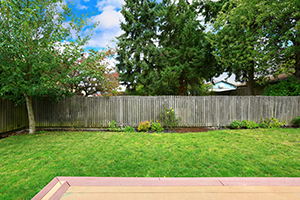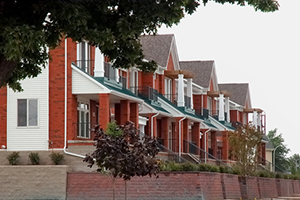Homeowner Associations
Homeowner Associations

Homeowners associations (HOAs) exist to administer subdivision, condominium and other community-owned residential property, taking over the responsibilities from the real estate developer. Created under a subdivision indenture, declaration of condominium or other recorded instrument, the rights and duties of HOAs are set forth with varying degrees of clarity.
Generally, but not always, HOAs are incorporated and governed by a Board of Directors, a Board of Trustees or a Board of Managers who are elected to make decisions on behalf of the association. These management boards consist of not less than 3 persons elected by the residents on an annual basis to terms of 1, 2 or 3 years.
As an operating entity, each association has bylaws, or indentures, that guide the trustees and residents. HOAs and their Boards are duty-bound to enforce the subdivision indenture, condominium declaration or other instrument fairly and collect and disburse funds in such amounts to provide for the necessities and amenities of the subdivision, condominium or other community-owned property.
Occasionally, a HOA runs afoul of its limitations or fails to enforce or impartially and fairly enforce the subdivision indenture or condo declaration. In such a case, after being notified of a purported situation in violation of its governing documents, the HOA either has to defend itself or make adjustments to its operating procedures. And after notice, if no correction occurs, appropriate action by the owners to enforce the indenture or declaration may be appropriate.
For trustees, homeowners, and property managers, the legal issues surrounding the association can run from traditional real estate questions involving buying or selling property to more complicated questions involving the nonprofit structure or management of the association itself.
Our attorneys work regularly in the areas of law that associations may need to address, including, for example:
- Administrative Law
- Bankruptcy & Collections
- Corporate Law
- Environmental Law
- Landlord/Tenant Law
- Municipal/Zoning Law
- Nonprofit Law
- Public Utilities Law
- Real Estate
Our experienced attorneys regularly represent all types of homeowner associations — condominium, subdivision, villa and road. We look forward to doing so in your situation if the need should so arise.
Additional HOA-related topics:
Homeowner Associations Articles
Raising Assessments, Conflict Between Declaration and By-Laws, and the Business Judgment Rule
In a decision handed down less than two weeks ago by the Missouri Court of Appeals, the court was confronted with a case involving the proper method for calculating a maximum annual assessment by the subdivision's board of directors absent a vote of the homeowners. In...
Proper Formation and Procedures for Condominium and HOA Committees
Frequently, when something novel is proposed to a condominium or subdivision association, or when an issue seems to dog an association, the board looks to approve a committee to study the issue, suggest options and report back to the board at some point in time. We’ve...
My Neighbor’s Tree
For many property owners, landscaping and trees are sources of great pride and enjoyment. But sometimes even life’s simplest joys become complications, and neighbors often disagree whether the stately sweetgum reaching over the fence is a beauty or a nuisance. What...
Recovering Delinquent Condominium Assessments; Scope and Limits of Missouri’s Super-Priority Lien
In 2014 the Missouri Legislature passed, and then-Gov. Nixon signed into law, an amendment to the Missouri Uniform Condominium Act, which granted condominium associations the right to collect up to six months of delinquent common expense assessments as a...





